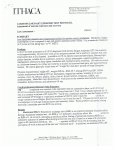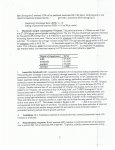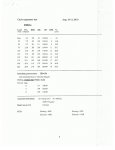mango
Senior Member
- Messages
- 905
Neural Consequences of Post-Exertion Malaise in Myalgic Encephalomyelitis/Chronic Fatigue Syndrome
Dane B. Cook, Alan R. Light, Kathleen C. Light, Gordon Broderick, Morgan R. Shields, Ryan J. Dougherty, Jacob D. Meyer, Stephanie VanRiper, Aaron J. Stegner, Laura D. Ellingson, Suzanne D. Vernon
Highlights
Post exertion malaise is one of the most debilitating aspects of Myalgic Encephalomyelitis/ Chronic Fatigue Syndrome, yet the neurobiological consequences are largely unexplored.
The objective of the study was to determine the neural consequences of acute exercise using functional brain imaging.
Fifteen female Myalgic Encephalomyelitis/Chronic Fatigue Syndrome patients and 15 healthy female controls completed 30 minutes of submaximal exercise (70% of peak heart rate) on a cycle ergometer.
Symptom assessments (e.g. fatigue, pain, mood) and brain imaging data were collected one week prior to and 24 hours following exercise. Functional brain images were obtained during performance of: 1) a fatiguing cognitive task – the Paced Auditory Serial Addition Task, 2) a non-fatiguing cognitive task – simple number recognition, and 3) a non-fatiguing motor task – finger tapping.
Symptom and exercise data were analyzed using independent samples t-tests. Cognitive performance data were analyzed using mixed-model analysis of variance with repeated measures. Brain responses to fatiguing and non-fatiguing tasks were analyzed using linear mixed effects with cluster-wise (101-voxels) alpha of 0.05.
Myalgic Encephalomyelitis/Chronic Fatigue Syndrome patients reported large symptom changes compared to controls (effect size ≥0.8, p<0.05). Patients and controls had similar physiological responses to exercise (p>0.05). However, patients exercised at significantly lower Watts and reported greater exertion and leg muscle pain (p<0.05).
For cognitive performance, a significant Group by Time interaction (p<0.05), demonstrated pre- to post-exercise improvements for controls and worsening for patients. Brain responses to finger tapping did not differ between groups at either time point. During number recognition, controls exhibited greater brain activity (p<0.05) in the posterior cingulate cortex, but only for the pre-exercise scan.
For the Paced Serial Auditory Addition Task, there was a significant Group by Time interaction (p<0.05) with patients exhibiting increased brain activity from pre- to post-exercise compared to controls bilaterally for inferior and superior parietal and cingulate cortices.
Changes in brain activity were significantly related to symptoms for patients (p<0.05).
Acute exercise exacerbated symptoms, impaired cognitive performance and affected brain function in Myalgic Encephalomyelitis/Chronic Fatigue Syndrome patients.
These converging results, linking symptom exacerbation with brain function, provide objective evidence of the detrimental neurophysiological effects of post-exertion malaise.
http://www.sciencedirect.com/science/article/pii/S088915911730051X
Dane B. Cook, Alan R. Light, Kathleen C. Light, Gordon Broderick, Morgan R. Shields, Ryan J. Dougherty, Jacob D. Meyer, Stephanie VanRiper, Aaron J. Stegner, Laura D. Ellingson, Suzanne D. Vernon
Highlights
- Acute exercise affects symptoms, cognitive performance and brain function in ME/CFS.
- Symptom provocation by exercise is a useful model to study post-exertion malaise.
- Objective neurophysiological evidence of the phenomenon of post-exertion malaise.
Post exertion malaise is one of the most debilitating aspects of Myalgic Encephalomyelitis/ Chronic Fatigue Syndrome, yet the neurobiological consequences are largely unexplored.
The objective of the study was to determine the neural consequences of acute exercise using functional brain imaging.
Fifteen female Myalgic Encephalomyelitis/Chronic Fatigue Syndrome patients and 15 healthy female controls completed 30 minutes of submaximal exercise (70% of peak heart rate) on a cycle ergometer.
Symptom assessments (e.g. fatigue, pain, mood) and brain imaging data were collected one week prior to and 24 hours following exercise. Functional brain images were obtained during performance of: 1) a fatiguing cognitive task – the Paced Auditory Serial Addition Task, 2) a non-fatiguing cognitive task – simple number recognition, and 3) a non-fatiguing motor task – finger tapping.
Symptom and exercise data were analyzed using independent samples t-tests. Cognitive performance data were analyzed using mixed-model analysis of variance with repeated measures. Brain responses to fatiguing and non-fatiguing tasks were analyzed using linear mixed effects with cluster-wise (101-voxels) alpha of 0.05.
Myalgic Encephalomyelitis/Chronic Fatigue Syndrome patients reported large symptom changes compared to controls (effect size ≥0.8, p<0.05). Patients and controls had similar physiological responses to exercise (p>0.05). However, patients exercised at significantly lower Watts and reported greater exertion and leg muscle pain (p<0.05).
For cognitive performance, a significant Group by Time interaction (p<0.05), demonstrated pre- to post-exercise improvements for controls and worsening for patients. Brain responses to finger tapping did not differ between groups at either time point. During number recognition, controls exhibited greater brain activity (p<0.05) in the posterior cingulate cortex, but only for the pre-exercise scan.
For the Paced Serial Auditory Addition Task, there was a significant Group by Time interaction (p<0.05) with patients exhibiting increased brain activity from pre- to post-exercise compared to controls bilaterally for inferior and superior parietal and cingulate cortices.
Changes in brain activity were significantly related to symptoms for patients (p<0.05).
Acute exercise exacerbated symptoms, impaired cognitive performance and affected brain function in Myalgic Encephalomyelitis/Chronic Fatigue Syndrome patients.
These converging results, linking symptom exacerbation with brain function, provide objective evidence of the detrimental neurophysiological effects of post-exertion malaise.
http://www.sciencedirect.com/science/article/pii/S088915911730051X





